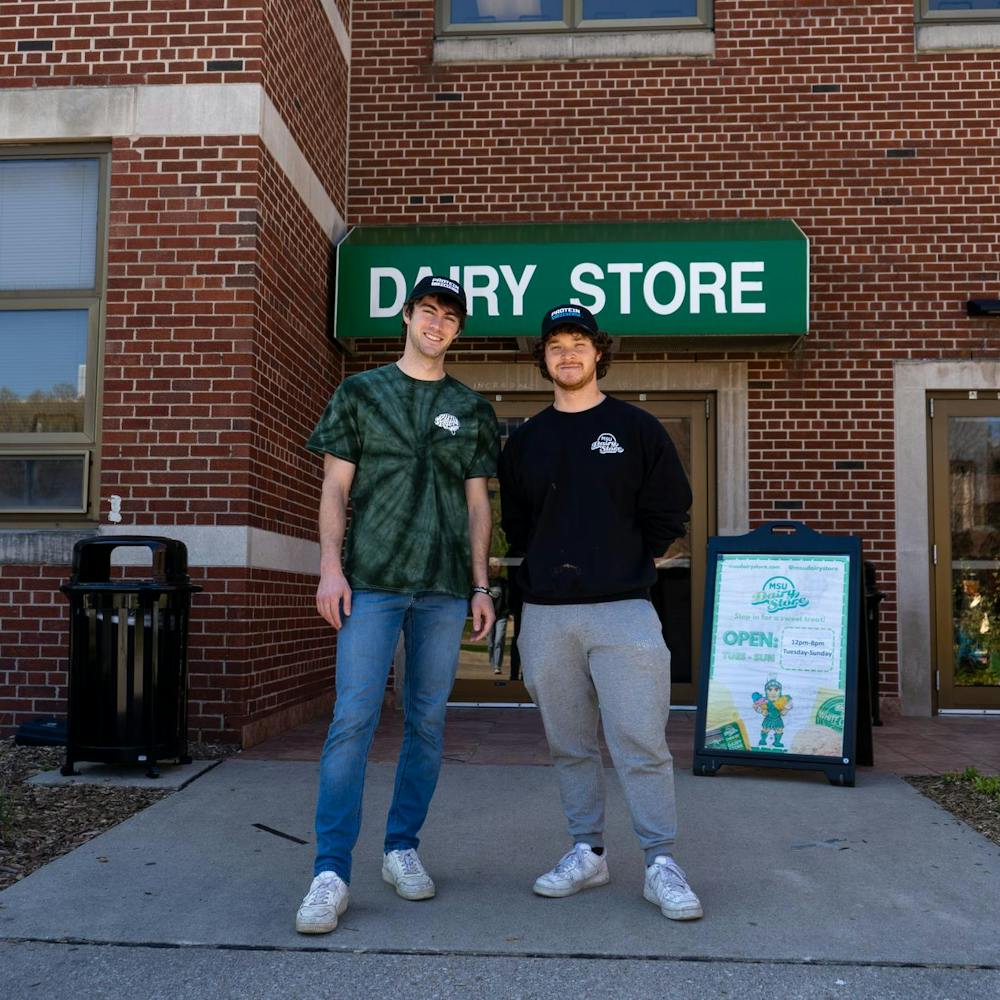Events have a way of clustering in order to force you to consider certain issues. Two weeks ago, I wrote a column explaining some points of the Palestinian-Israeli conflict, and within days I was swamped with letters saying, among other things, that I should refrain from writing about any international conflict that didn’t involve India. A few days after that, I met a very nice Pakistani boy who wanted to know where I was from. When I said Okemos, he laughed and said, “No, where - originally?” A few days after that, I celebrated the Indian holiday of Divali.
All of these small events are hardly worth remembering, except for that they all occurred within a few days of each other, and all of them combined seem to ask of me what measure of my identity I have inherited with my blood.
It’s not an original question by any means, but I do think it’s a question that will be asked more frequently in the coming years, as the immigrant population that arrived in this country in the ’60s and ’70s cascades into first- and second-generation immigrants.
That wave of immigrants is qualitatively different than those who came before - the culture from which they came is largely Eastern, non-Christian and culturally separated from the American experience in a way that the earlier European immigrants were not. Now, their children are coming into their own adulthood after being raised in America. In a few years, we will be having children of our own, and will have to decide in what way our children will be raised. They will have to decide to what degree they will be exposed to and taught the culture and ways of their parents.
Before I decide who my children will grow up to be, though, I need to ask what I am - I need to ask who I am - and to what degree I am different by virtue of my ethnicity.
Several answers are nice and neat. I could say that I am a unique and beautiful star of nature’s beauties, and I am defined by nothing more than my own desires and thoughts. This is a very nice answer, and it would be true if I communicated in grunts and could not read. As it is, I speak English and am burdened with interaction with other people. As such, I am compelled to adopt a culture and I am compelled to choose a forum in which to live as well as compelled to be part of a community of people like me.
More importantly, I am a citizen of a nation of people who look at me and, from my appearance, make assumptions about my identity on which they base their behavior. In other words, people see me as an Indian, and act accordingly. It’s not bigotry so much as it is human nature - we have to form generalizations to help us live.
You also could say that I’m a mix of cultures - that I am a walking and talking example of the diversity that makes our nation great. This answer is largely baloney and is responsible for the imbecilic notion of tolerance. We’re under the delusion that we have a universally tolerant culture in this country - we don’t. In fact, universal tolerance is impossible. How compatible with American society is polygamy? How compatible is infanticide? Child marriage? All of these are features of various world cultures, and all of them are met with the same disdain from Americans. We’re welcoming and tolerant, but only of those ways that are not too far removed from our Judeo-Christian legacy. I’m not criticizing America, the intolerance is unavoidable. I’m criticizing those who would have us truly welcome all creeds. Culture is not a Chinese menu - you cannot take some from column A or column B.
A culture is a self-contained way of looking at existence that gives certain priority to certain morals. A culture holds that it is the correct way of looking at the world; it is inevitable that in adopting a culture, I would be dismissing others as incorrect. I have to choose one identity as being more important than the other.
In choosing, though, which has precedence, blood or home? My ancestry is in the Punjab region, land of the five waters. My childhood home is in St. Johns, mint capital of the world. My parents speak the queen’s English better than most people I know, but my mother still pronounces her v’s like w’s. I watch “Buffy” every week, but my house is often filled with the sound of some Hindi-singing woman being kidnapped by a man with a big mustache so that she can be rescued by a man with way too much chest hair. It would seem that I stand with one foot in the East and one in the West. It would seem that way, but ultimately, I don’t.
As much as we would like to think of ourselves as a species of abstract thought, allegiance is a shallow affair. So very much of our interaction is founded on looks. On a fundamental level, we instinctively believe that other people feel and think like we do simply because they look like we do. Give a robot a passable human body, and the question of whether it thinks is moot - people will assume that it does, because it looks and acts like an animal that thinks. We feel a detachment from the disfigured and deformed because our faith that they are people like us is shaken.
We dehumanize and protect others based on their appearance - and we ally ourselves with them because of it. The truth is that no matter how perfect my parents’ English or how much of a Midwesterner I am in action, I look different. The truth is that people will treat me differently because of how I look. And, yes, the truth is that I feel a subtle sense of comfort in the company of other Indians. I have inherited with my blood a history and an identity that is assigned to me by others, an identity that I cannot and do not want to escape.
Undoubtedly, I’m going to receive letters asking me why, then, do I continue to live here if I relate too well with Indians? The answer is simple, I love this country. As an Indian, I love the principles America holds up as ideal. I love this country because I can be Indian within its borders. I love this country because I was raised here. But if I ever have to choose to live here or to maintain my identity, I need only look in a mirror for an answer.
Rishi Kundi is the State News graduate columnist whose column appears every other Wednesday. He can be reached at kundiris@msu.edu.



